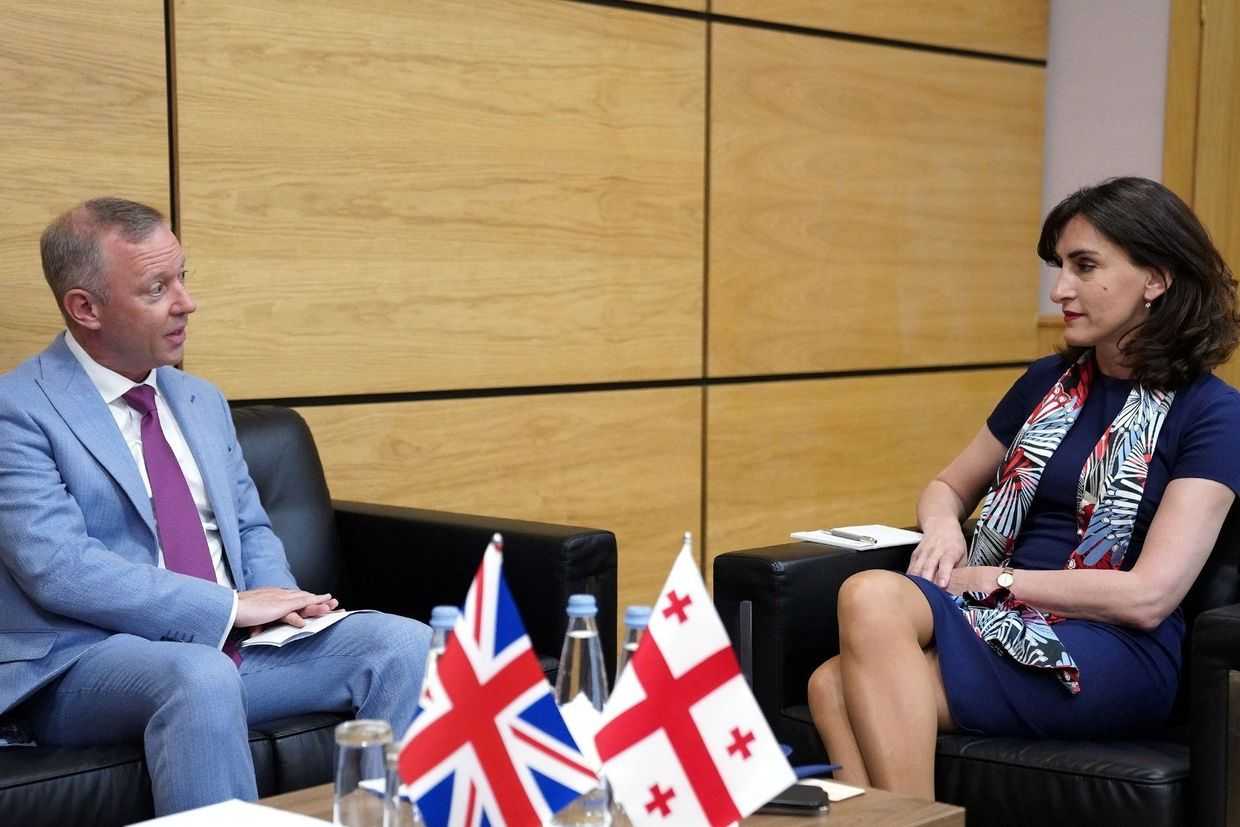
The Georgian Orthodox Church held their eighth annual event to mark Family Sanctity Day on International Day against Homophobia, a recently invented tradition to prevent queer rights advocates from publicly demonstrating in central Tbilisi city.
Thousands gathered in the city centre after a call by the Georgian Orthodox Church to attend church services and then participate in a procession on 17 May.
Globally, 17 May is marked as the International Day against Homophobia, Biphobia, and Transphobia. In 2014, following mass violence against queer activists who tried to march in Tbilisi on 17 May 2013, the Church introduced Family Sanctity Day in an apparent attempt to block further mobilisation by queer rights activists.
[Read more on OC Media: Georgia responsible for ‘unprecedented’ 2013 attack on queer activists, ECHR rules]
Following the church service at the Kashveti church in Tbilisi, worshippers, including many who had brought their children, proceeded with icons in hand to Sioni Cathedral, also in Tbilisi. Tbilisi’s central Rustaveli Avenue was subsequently blocked.
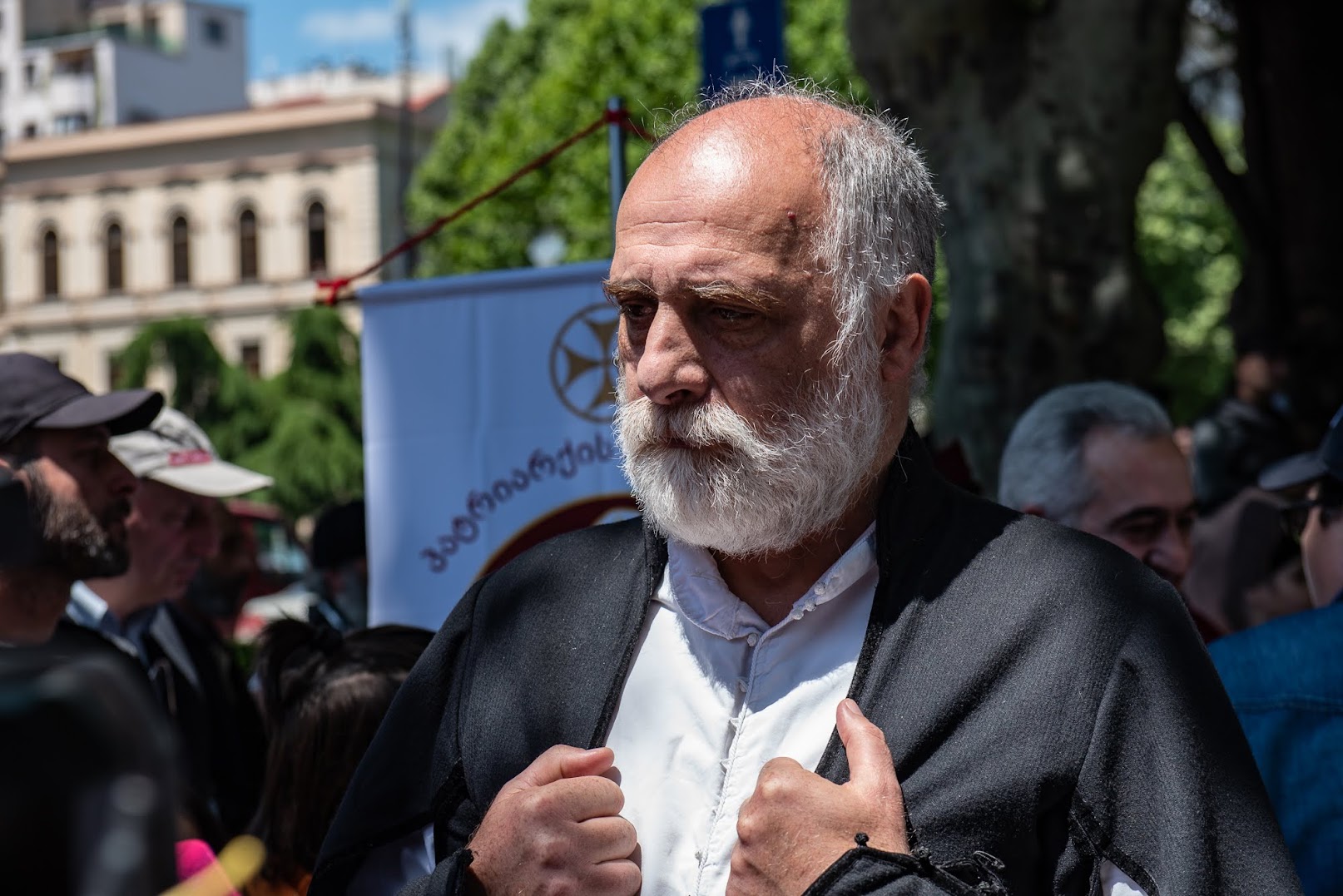
In their announcement of the event, the Patriarchate, the ruling body of the Georgian Orthodox Church, said the day would also be dedicated to ‘peace in Georgia and in Ukraine and the whole world’ and expressed their ‘deepest sorrow for the military actions undertaken by Russia in Ukraine’.
A history of violence
Over the past decade, activists have frequently attempted to hold public demonstrations on 17 May, before largely switching to moveable pride events since 2019. Tbilisi Pride, currently the most visible queer group in Georgia, have not yet announced plans for the 2022 Pride Week.
This year, leading queer rights advocates in Georgia marked 17 May with a panel discussion organised by Tbilisi Pride. The speakers at Tuesday’s event included Reform Group’s Tariel Nakaidze, the country’s first ethnic Georgian Muslim MP.
The event was opened by Georgian Public Defender Nino Lomjaria, who once again criticised the Georgian government’s poor record of guaranteeing the right to assembly for queer people and allies in Georgia.
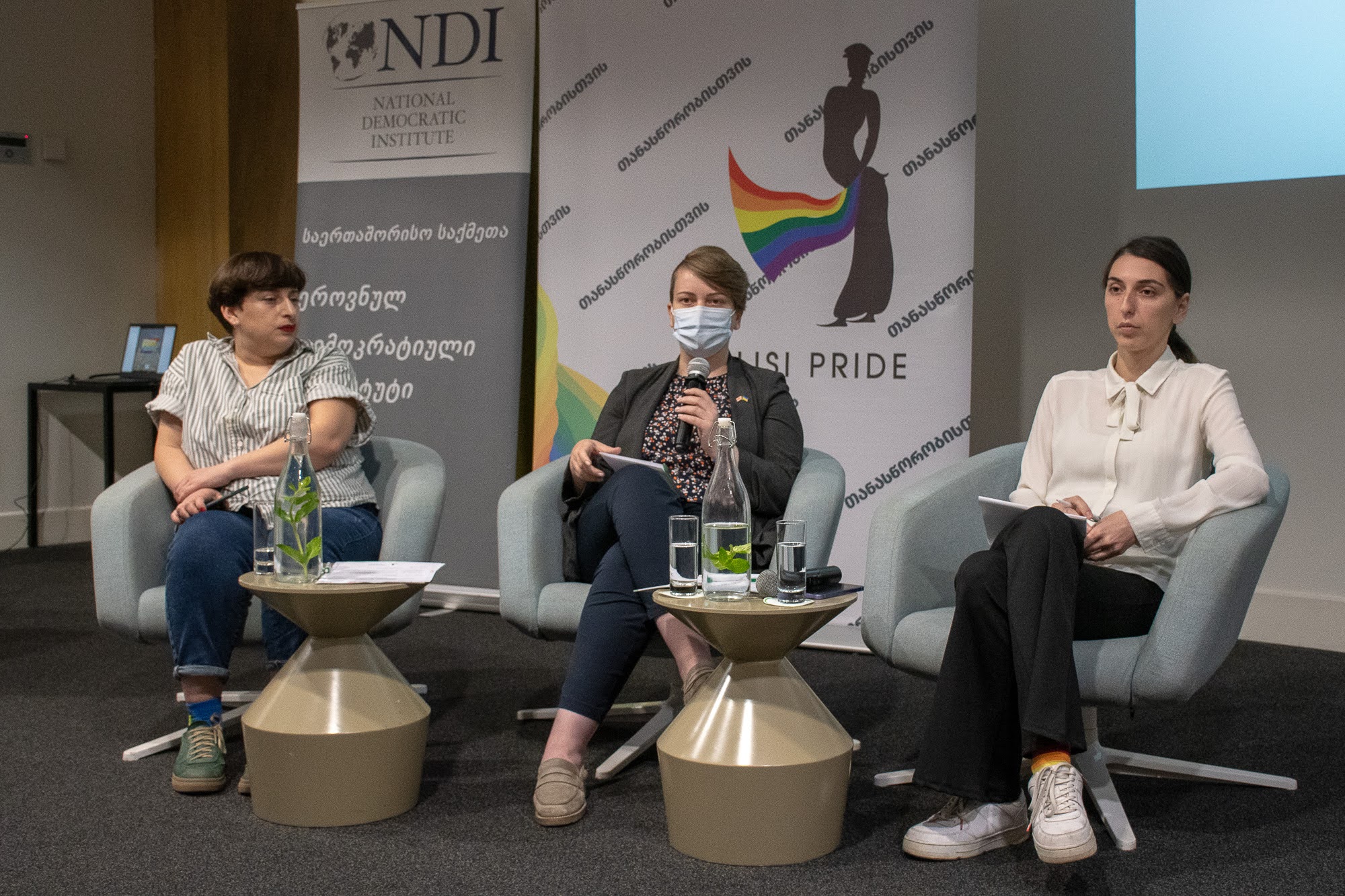
Lomjaria also referred to last year’s mass violence against journalists after Tbilisi Pride attempted to organise a pride march.
On 5 July, Tbilisi Pride had to call off their event due to security concerns as mobs attacked dozens of journalists, and ransacked the offices of Tbilisi Pride and their supporters, the Shame Movement.
[Read more on OC Media: Homophobic mob celebrates on Tbilisi streets after Pride march cancelled]
‘For several years, the Public Defender was calling for high ranking officials to make statements supportive of certain groups. Now we live in a reality where we have to ask high ranking officials […] to abstain from making statements that incite violations of the rights of the community’, Lomjaria noted in her address.
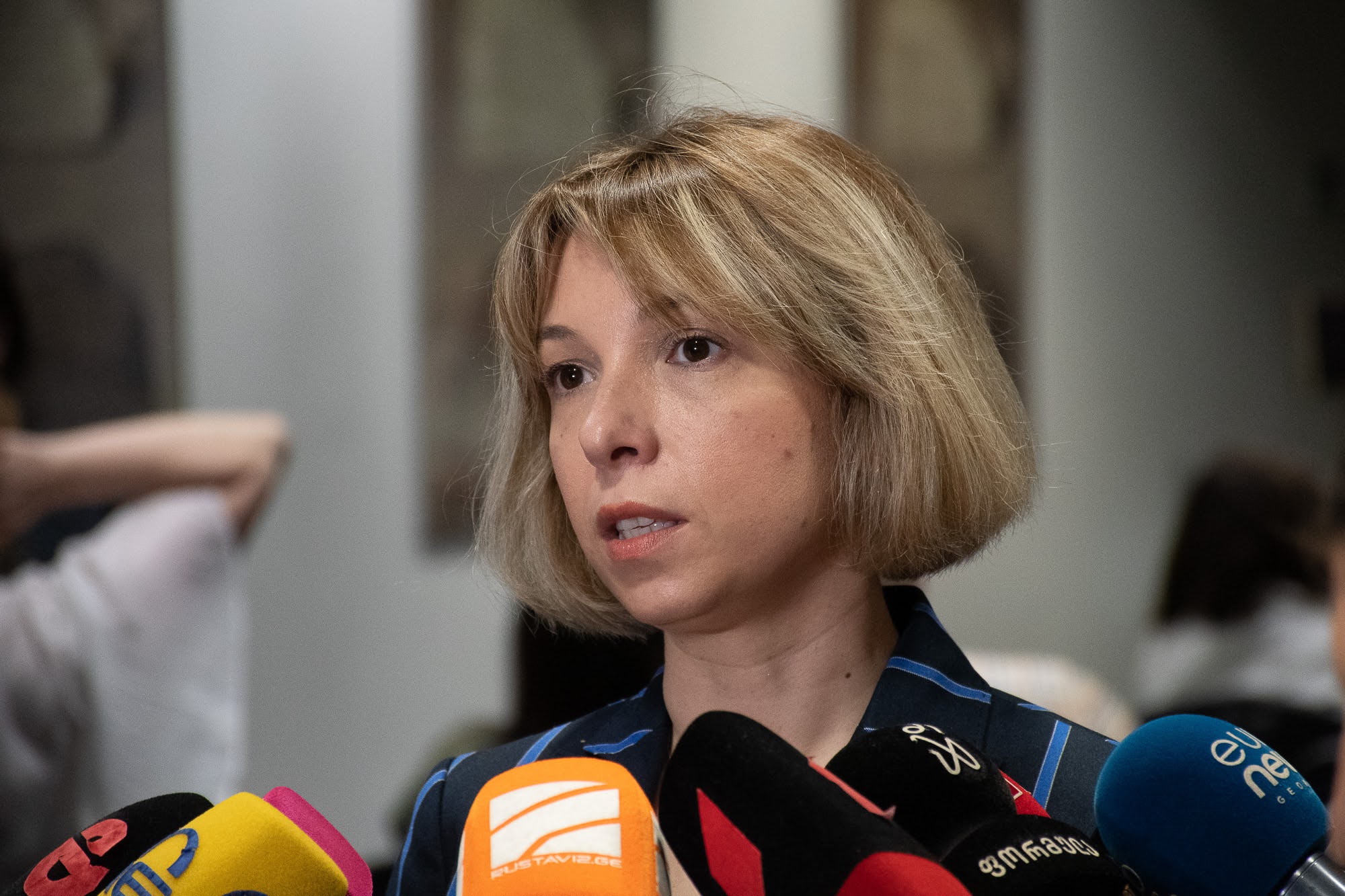
Speaking with OC Media, Giorgi Tabagari, the co-founder and former director of Tbilisi Pride said that the already limited freedoms afforded to the queer community to hold public events had shrunk following yet another outbreak of homophobic violence on 17 May 2018, though ‘the overall situation is more or less the same as before’.
Before 2018, according to Tabagari, ‘there was some sort of cooperation between the government and queer organisations’ but even then, he noted, there was some line that you could not cross, for instance, holding a queer rights march.
In a 17 May joint statement, four queer community groups, the Women’s Initiatives Supportive Group (WISG), Equality Movement, Identoba Youth, and Temida, lambasted the instrumentalisation of queer rights for political ends, including to distract from ‘fundamental socio-economic needs’.
They took aim at far-right groups and the Church for upholding social and economic inequalities, while also claiming that unnamed ‘civic activists’ opposed to the government were doing the same.
The groups also accused left-wing circles in Georgia of ignoring or denying ‘oppression based on gender and sexuality’, which they said was contributing to the ‘patriarchical, nationalist, and neoliberal status quo’.
The groups went on to highlight how the rights of Georgians to dignified work, healthcare, housing, and education were being violated, and the additional plight queer people faced in these areas.
Growing public support
In the aftermath of last year’s homophobic riots, hate-based incidents grew and Georgian Prime Minister Irakli Gharibashvili doubled down on demonising Tbilisi Pride and their supporters. However, public opinion surveys have given the queer community some hope for change for the better.
In the latest study by WISG, commissioned by the UN, 53% of those surveyed supported legal restrictions on public assembly for queer people — down from 78% in the previous survey in 2016. The results also showed growing opposition to such a proposal (from 15% to 27%).
The survey also showed a drop in negative attitudes towards queer activists (from 74% to 57%).
WISG highlighted these findings to question Gharibashvili’s homophobic claim that ‘95%’ of Georgians were against a ‘propagandistic [queer rights] march or parade’, something he argued within days of the violent homophobic riot in Tbilisi last July.
Giorgi Tabagari told OC Media he was not surprised by the numbers.
‘These results were sort of the validation of a positive trend revealed by earlier recent studies’, he said.
In a study carried out by CRRC months after the 5 July violence, 74% of those surveyed fully or partially agreed that the country’s constitution should grant freedom of expression to anybody, regardless of their racial, ethnic, religious, or sexual identity.
Despite the positive trends, according to Nino Bolkvadze, who leads the queer group Equality 17, Georgians living outside Tbilisi have become vulnerable to ‘Russia’s soft power’.
Bolkvadze named the Georgian Dream-led government as the responsible party for this trend.
‘After 2017–2018, Georgian Dream more openly pursued a pro-Russia foreign policy and also started discrediting queer activists, and also Georgian Public Defender, with online bots on public platforms.’
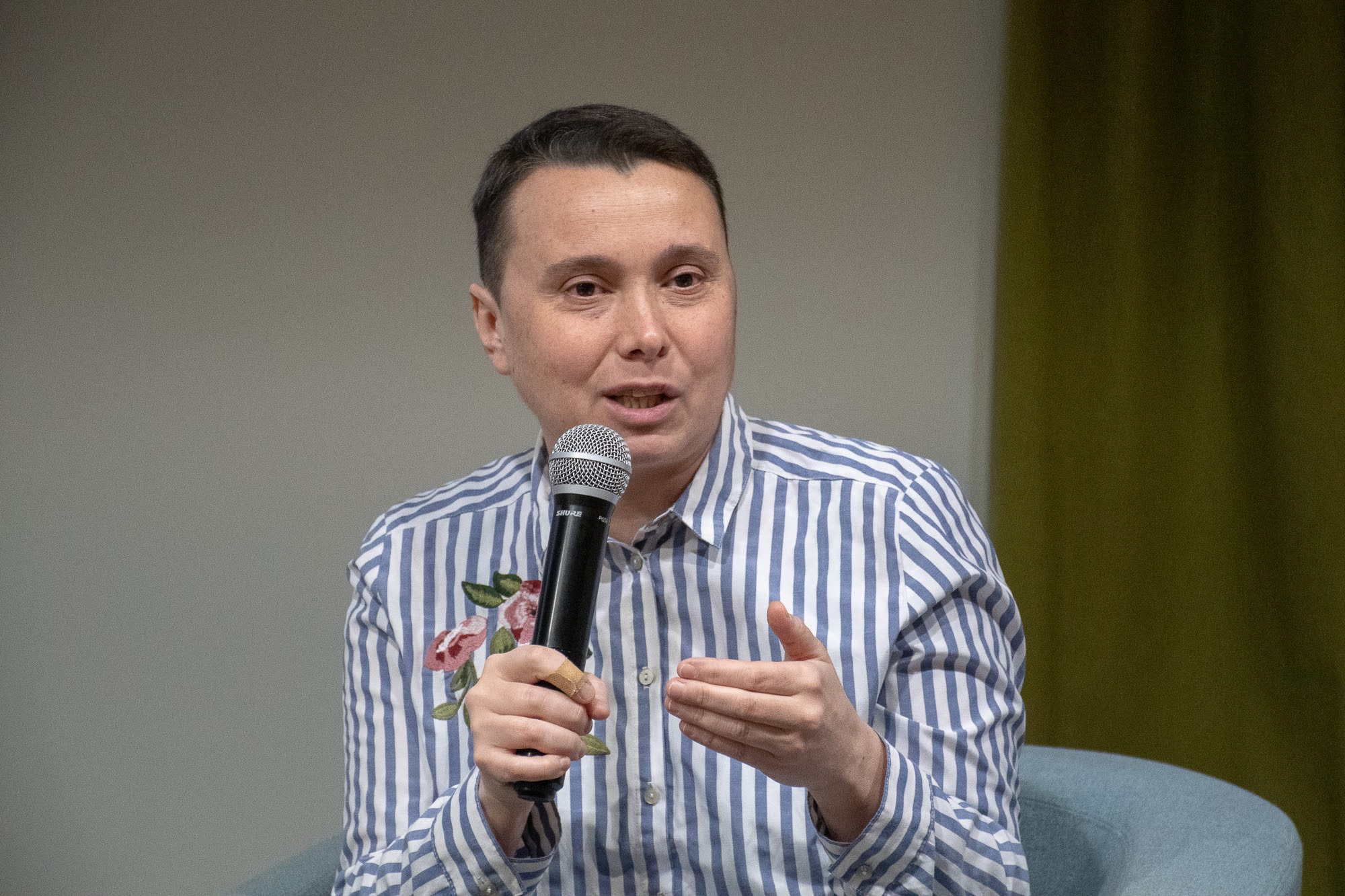
‘The counter-narrative from ultra-right groups have strengthened in the regions […] we are in a more challenging situation now because we now have to address this learnt narrative that was not there before’, Bolkvadze told OC Media.






